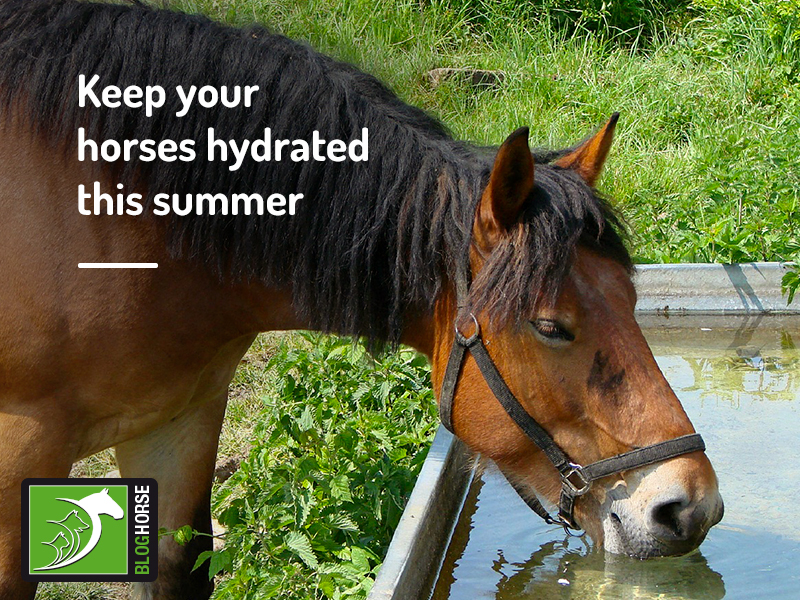
Keep your horses hydrated this summer

As the principal constituent of a horse's body, accounting for 70% of its composition, water is a fundamental part of life, participating in every physiological process from temperature regulation to digestion.
This is why water consumption is so important and why we should keep an eye on our horses' drinking behaviour, especially during summer, as temperature is one of the major factors that influence daily water requirements.
When the water intake does not meet the daily requirements or when there is excessive water loss due to sweating, excessive urination or diarrhoea, your horses can quickly become dehydrated which can have a serious impact on their vital functions.
Early signs of dehydration can be recognised as alterations in gum colour and saliva consistency, an elevated heart rate, decreased skin elasticity and dullness in the eyes. As dehydration becomes more severe, horses can become lethargic, and their metabolism compromised, leading to impaction colic and organ failure, both of which can be fatal.
Here are 3 essential pointers to help you keep your horses hydrated:
#1: Accessibility
Making sure your horses have access to multiple sources of clean, fresh water at all times should be your number one priority. As trivial as this may seem, simple issues like having some dirt in the trough or extremes of water temperature can decrease or even stop your horses' water intake. Check their water sources frequently, keep them filled and clean and don't be afraid to try different receptacles, sources and temperatures to find out your horses' preferences.
#2: Diet
Keep in mind that water consumption will vary according to what your horses are eating. Good-quality pastures can offer up to 80% water moisture in the grass, which will make water intake drop, as opposed to hay, which is drier, and will likely lead to drinking more water.
#3: Salt (sodium chloride)
Salt, in conjunction with water, helps in many physiological processes that keep the body functioning. One of these processes is the thirst mechanism, and correct sodium balance is essential for it to work properly.
Some horses, especially the ones that exercise and sweat regularly, might benefit from having their diet supplemented with salt.
Before supplementing, you should consult with your veterinarian so he or she can make tailored recommendations according to your horses' lifestyle, routines, environment, body condition and health.
Salt supplementation can be achieved with salt blocks, salt licks and by offering loose salt with daily concentrate. However, salt consumption through any of these methods can be variable due to inconsistent intake and palatability issues.
Keep in mind that there is a number of factors not mentioned here that also affect your horses' water balance and that when one changes, the others can be affected as well.
Would you like to know more about horses? Check our Equine Courses:
Equine courses
Published: 21 Jun 2019
Read the previous article: 'Feline' itchy?

